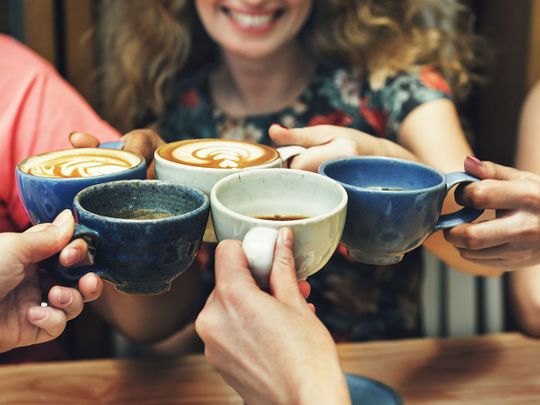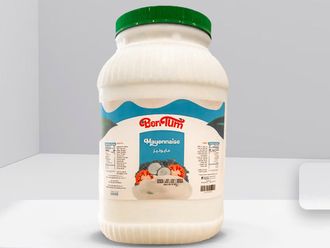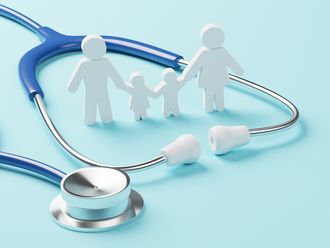
There are few things more sacred (to many) than a morning cup of joe. Sometimes it feels like your brain refuses to start without it.
However, coffee may be doing more than providing that energy boost. The health impact of coffee has long been a controversial topic, with advocates hyping its antioxidant activity and brain-boosting ability, and critics detailing downsides such as insomnia, indigestion and an increased heart rate and blood pressure. And that begs the question: Is coffee good or bad?

It contains antioxidants called polyphenols, which aid in reducing inflammation and cellular damage. Coffee may also reduce the risk of some diseases such as Parkinson’s, cancer, and diabetes.
A study in the British Medical Journal found that drinking three to four cups of coffee a day was associated with a lower risk of death and developing heart disease, lower risk of some cancers, diabetes, liver disease and dementia. The latest research, published in The European Journal of Epidemiology, found that it was linked with reduced mortality.
“Coffee could have some health benefits if consumed in moderation,” says Dana Al Shaka’a, Clinical Dietitian, American Hospital Dubai. “It contains antioxidants called polyphenols, which aid in reducing inflammation and cellular damage. Coffee may also reduce the risk of some diseases such as Parkinson’s, cancer, and diabetes.”
When you brew coffee, a significant amount of soluble fibre passes from ground beans into your beverage. “As a cup of coffee contains 1.8gm of fibre, it could help you reach your daily fibre goal of 20-38gm,” says Jasna Kizhakkeveetil, Dietician , Aster Clinic, Al Qusais. “It also protects against cirrhosis of the liver, lowers the risk of Alzheimer’s disease, and helps in reducing depression.”
The best way
The way your coffee is brewed can tinker with more than just taste — it can determine how much its health benefits you gain.
“Coffee is best enjoyed plain black or with milk,” says Al Shaka’a. “Additions such as cream, syrups, sugar, and flavours increase the calories. Try adding sweet spices such as cinnamon or cocoa powder as an alternative to sugar. Make sure not to have your coffee first thing in the morning on an empty stomach, coffee is highly acidic and could increase stomach reflux and harm people with ulcers.”
The type of coffee you choose will also have an impact. “Filter coffee lightly roasted, drunk black and unsweetened, may be your best option,” says Kizhakkeveetil. “On its own, black coffee has virtually no calories. Adding 100g milk of 1 per cent fat milk contains about 42 calories.”
Sleep issues?
While coffee affects its drinkers differently, a single cup may well disrupt your sleep hours too. “Caffeine is a central nervous system stimulant,” explains Dr Mazen Zouwayhed, Pulmonary Critical Care and Sleep Consultant, American Hospital Dubai. “Its effect on sleep can include insomnia and reduction in the total sleep time. Studies showed that consuming one cup of coffee within six hours of sleep time can reduce the total sleep time by at least one hour.”

Caffeine's effect on sleep can include insomnia and reduction in the total sleep time. Studies showed that consuming one cup of coffee within six hours of sleep time can reduce the total sleep time by at least one hour.
Caffeine promotes alertness by acting as an adenosine receptor antagonist. “Adenosine is a substance in your body that promotes sleepiness,” says Dr Sanjay Kewalramani, Specialist ENT, Medcare Hospital — Sharjah. “Caffeine blocks the adenosine receptor to keep you from feeling sleepy. A study also found that caffeine can delay the timing of your body clock.”

It is best if you avoid caffeine in the late afternoon and in the evening. You should limit your caffeine consumption to no more than about 300 mg to 400 mg (three to four cups) per day
So, how can you enjoy it without wrecking your sleep? “Coffee has a significant amount of caffeine as each cup contains about 90mg to 130mg of caffeine,” says Dr Zouwayhed. “To enjoy coffee and avoid its effect on sleep it should be taken in moderation and the last coffee drink should be taken six hours before bedtime.”
The best time to have coffee, according to Dr Kewalramani, is during the morning. “It is best if you avoid caffeine in the late afternoon and in the evening,” he says. “You should limit your caffeine consumption to no more than about 300 mg to 400 mg (three to four cups) per day.”
Tea or coffee?
Is tea a better option than coffee as far as health benefits are concerned? “A hot cup of coffee can perk you up in the morning, whereas tea will help you to relax,” says Kizhakkeveetil. “Coffee and tea are generally positive when consumed in limited quantities. The amount of each that you consume can depend on your age, weight and medical history.”
The caffeine content varies between tea and coffee: one cup (236ml) tea has 50mg of caffeine, whereas a cup of coffee has 150mg.

As a cup of coffee contains 1.8g of fibre, it could help you reach your daily fibre goal of 20-38g. It also protects against cirrhosis of the liver, lowers the risk of Alzheimer’s disease, and helps in reducing depression
“They have similar health benefits as both contain polyphenols,” says Al Shaka’a. “An added benefit in tea comes from flavonoids, another antioxidant which may help maintain normal blood vessel function. Black tea is the most oxidised, while green tea and white tea are made from more mature leaves that are not fermented or oxidised and therefore may contain higher levels of flavonoids. However, the amount of caffeine is same as black tea.”












